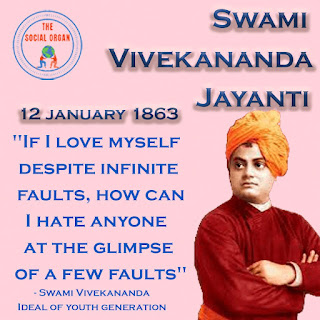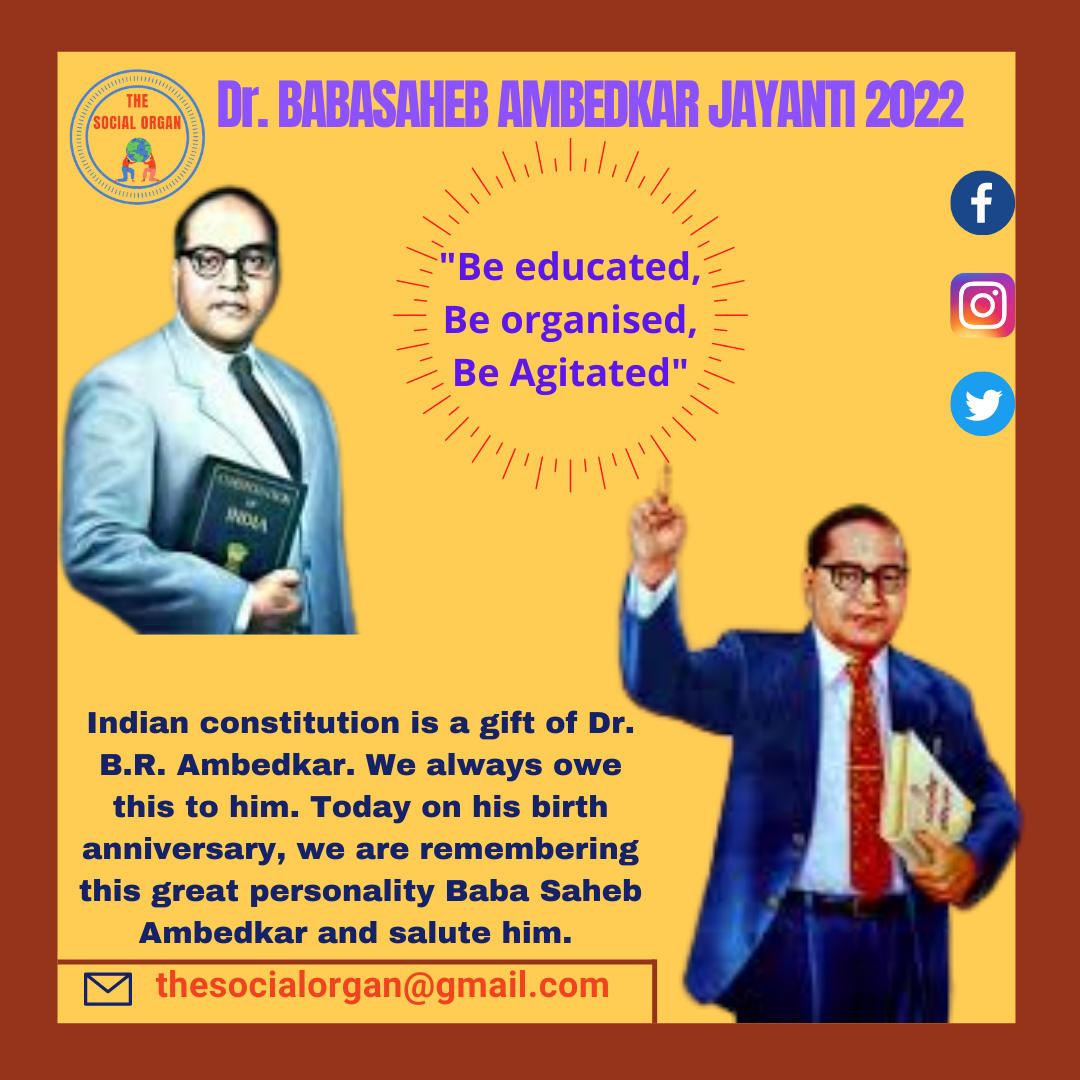How Vivekananda left Englishman shocked by his quick and visionary answering skills? Why he is considered as youth icon of India?
Swami Vivekananda- The man of words
(An article by The Social Organ team)
Born as Narendra Nath Dutta on 12th January 1863 in the holy and divine place of Kolkata, Swami Vivekananda was a great Indian saint. He was a figure with “high thinking and simple living”. He was a great pious leader, a philosopher, and also a devout personality with great principles. He was a divine man with a great personality and memory. He used to read Bhagwad Geeta and motivated others to do so. He is the ideal youth icon for India. He had a different perspective on the world.
Vivekananda, original name Narendra Nath Datta, Datta also
spelled Dutt, (born January 12, 1863, Calcutta [now Kolkata]—died July 4, 1902,
near Calcutta), Hindu spiritual leader and reformer in India who attempted to
combine Indian spirituality with Western material progress, maintaining that
the two supplemented and complemented one another. His Absolute was a person’s
own higher self to the benefit of humanity was the noblest endeavor.
Vivekananda, original name Narendra Nath Datta, Datta also
spelled Dutt, (born January 12, 1863, Calcutta [now Kolkata]—died July 4, 1902,
near Calcutta), Hindu spiritual leader and reformer in India who attempted to
combine Indian spirituality with Western material progress, maintaining that
the two supplemented and complemented one another. His Absolute was a person’s
own higher self; to labor for the benefit of humanity was the noblest endeavor.
Born into an upper-middle-class family of the Kayastha
(scribes) caste in Bengal, he was educated at a Western-style university where
he was exposed to Western philosophy, Christianity, and science. Social reform
became a prominent element of Vivekananda’s thought, and he joined the Brahmo
Samaj (Society of Brahma), dedicated to eliminating child marriage and
illiteracy and determined to spread education among women and the lower castes.
He later became the most-notable disciple of Ramakrishna, who demonstrated the
essential unity of all religions.
Always stressing the universal and humanistic side of the
Vedas, the oldest sacred texts of Hinduism, as well as belief in service rather
than dogma, Vivekananda attempted to infuse Vigour into Hindu thought, placing
less emphasis on the prevailing pacifism and presenting Hindu spirituality to
the West. He was an activating force in the movement to promote Vedanta philosophy
(one of the six schools of Indian philosophy) in the United States and England.
In 1893 he appeared in Chicago as a spokesman for Hinduism at the World’s
Parliament of Religions and so captivated the assembly that a newspaper account
described him as “an orator by divine right and undoubtedly the greatest figure
at the Parliament.” Thereafter he lectured throughout the United States and
England, making converts to the Vedanta movement.
On his return to India with a small group of Western
disciples in 1897, Vivekananda founded the Ramakrishna Mission at the monastery
of Belur Math on the Ganges (Ganga) River near Calcutta (now Kolkata).
Self-perfection and service were his ideals, and the order continued to stress
them. He adapted and made relevant to the 20th century the very highest ideals
of the Vedantic religion, and, although he lived only two years into that
century, he left a mark of his personality on East and West alike.
In 1895, Swami Vivekananda met famous scientist Nicholas
Tesla and for the first time shared the idea that matter and energy are one. He
requested Tesla to prove it through mathematics, which he failed to do, but
after 10 years, Einstein proved the oneness of matter and energy in his theory
of relativity.
Vivekananda lived 39 years only but he enlightened the whole
world with his divine and rememberable thoughts. As a team of The Social Organ,
we request you to consider Swami Vivekananda as your icon and not these
Bollywood stars spreading and promoting the wrong thoughts to the youth.
Lastly, we salute the great youth icon of India Swami Vivekananda. and request all the youth to remember and consider him as their idol.
“You can
not believe in god until you believe in yourself”
-
Swami Vivekananda




This is great article 👍
ReplyDeleteGood information
ReplyDelete